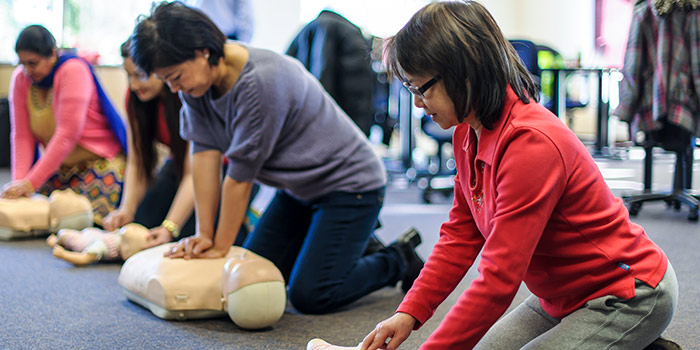
Introduction
In the vibrant city of Ottawa, CPR courses are not just a requirement but a vital skillset that can save lives. As technology advances and medical practices evolve, it’s crucial to stay updated with the latest CPR techniques and certifications. In this comprehensive guide, we delve into the top CPR courses available in Ottawa for the year 2024. From basic life support to advanced resuscitation techniques, we’ve curated a list of courses that cater to various skill levels and preferences. Whether you’re a healthcare professional, a concerned citizen, or someone looking to enhance their life-saving abilities, this review will help you make an informed decision.
CPR Courses Ottawa (Review) 2024
Choosing the Right CPR Course
Embarking on a journey to learn CPR is commendable, but selecting the right course is crucial for effective learning and skill development. With a myriad of options available, it’s essential to consider factors such as accreditation, course content, instructor expertise, and practical training opportunities. Here’s a breakdown of what to look for:
- Accreditation and Certification
- Course Curriculum and Content
- Instructor Qualifications and Experience
- Practical Training and Simulation Exercises
Accreditation and Certification
When considering CPR courses, prioritize those accredited by recognized organizations such as the American Heart Association (AHA), the Red Cross, or the Heart and Stroke Foundation. These accreditations ensure that the course meets industry standards and adheres to the latest guidelines in CPR and first aid training.
Course Curriculum and Content
The content of the CPR course should be comprehensive, covering essential topics such as basic life support (BLS), cardiopulmonary resuscitation (CPR) techniques for adults, children, and infants, automated external defibrillator (AED) usage, and choking relief procedures. Additionally, courses that offer training in advanced cardiac life support (ACLS) and pediatric advanced life support (PALS) provide valuable skills for healthcare professionals.
Instructor Qualifications and Experience
The expertise of the instructors plays a significant role in the quality of CPR training. Look for courses led by certified instructors with extensive experience in emergency medicine, nursing, or allied healthcare fields. Experienced instructors can provide valuable insights, hands-on demonstrations, and real-life scenarios to enhance learning outcomes.
Practical Training and Simulation Exercises
Hands-on practice is essential for mastering CPR techniques effectively. Opt for courses that incorporate practical training sessions with simulation manikins and AED trainers. These sessions allow participants to apply theoretical knowledge in realistic scenarios, boosting confidence and competence in performing CPR during emergencies.
FAQs
How often should CPR certification be renewed?
CPR certification typically expires every two years. It’s essential to renew certification regularly to stay updated with the latest techniques and guidelines.
Can anyone learn CPR, or is it only for healthcare professionals?
Absolutely! CPR training is beneficial for everyone, regardless of their profession. Anyone can learn CPR and become equipped to save lives in emergency situations.
Are online CPR courses as effective as in-person training?
While online CPR courses offer flexibility and convenience, in-person training provides hands-on practice and immediate feedback from instructors, making it more effective for skill acquisition.
Do CPR courses cover pediatric CPR techniques?
Yes, most CPR courses include pediatric CPR techniques tailored for infants and children, considering their unique physiology and needs.
What should I do if someone is choking but becomes unconscious during rescue efforts?
If someone becomes unconscious while you’re performing the Heimlich maneuver or back blows for choking relief, lower them to the ground and initiate CPR immediately, starting with chest compressions.
Is it normal to feel anxious or overwhelmed during CPR training?
It’s entirely normal to feel nervous or overwhelmed during CPR training, especially if it’s your first time. Remember that practice and repetition are key to building confidence and proficiency.
Conclusion
In conclusion, investing in CPR training is a valuable step towards being prepared for emergencies and potentially saving lives. By choosing the right CPR course, prioritizing practical training, and staying updated with certification renewals, you can equip yourself with essential life-saving skills. Whether you’re a healthcare professional, a parent, or a concerned citizen, CPR courses in Ottawa offer the knowledge and confidence needed to act swiftly and effectively in critical situations.
